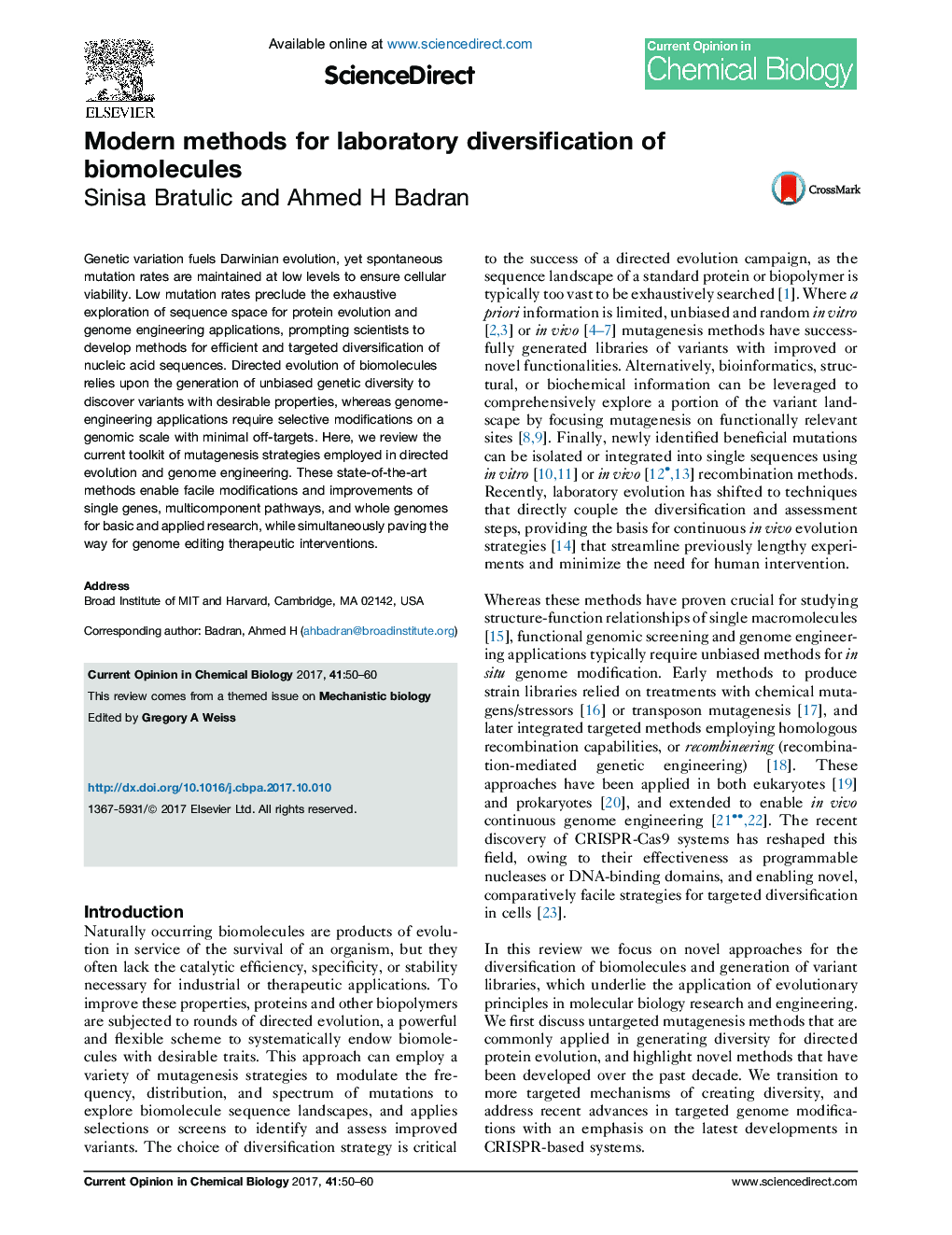| Article ID | Journal | Published Year | Pages | File Type |
|---|---|---|---|---|
| 7693977 | Current Opinion in Chemical Biology | 2017 | 11 Pages |
Abstract
Genetic variation fuels Darwinian evolution, yet spontaneous mutation rates are maintained at low levels to ensure cellular viability. Low mutation rates preclude the exhaustive exploration of sequence space for protein evolution and genome engineering applications, prompting scientists to develop methods for efficient and targeted diversification of nucleic acid sequences. Directed evolution of biomolecules relies upon the generation of unbiased genetic diversity to discover variants with desirable properties, whereas genome-engineering applications require selective modifications on a genomic scale with minimal off-targets. Here, we review the current toolkit of mutagenesis strategies employed in directed evolution and genome engineering. These state-of-the-art methods enable facile modifications and improvements of single genes, multicomponent pathways, and whole genomes for basic and applied research, while simultaneously paving the way for genome editing therapeutic interventions.
Related Topics
Physical Sciences and Engineering
Chemistry
Chemistry (General)
Authors
Sinisa Bratulic, Ahmed H Badran,
